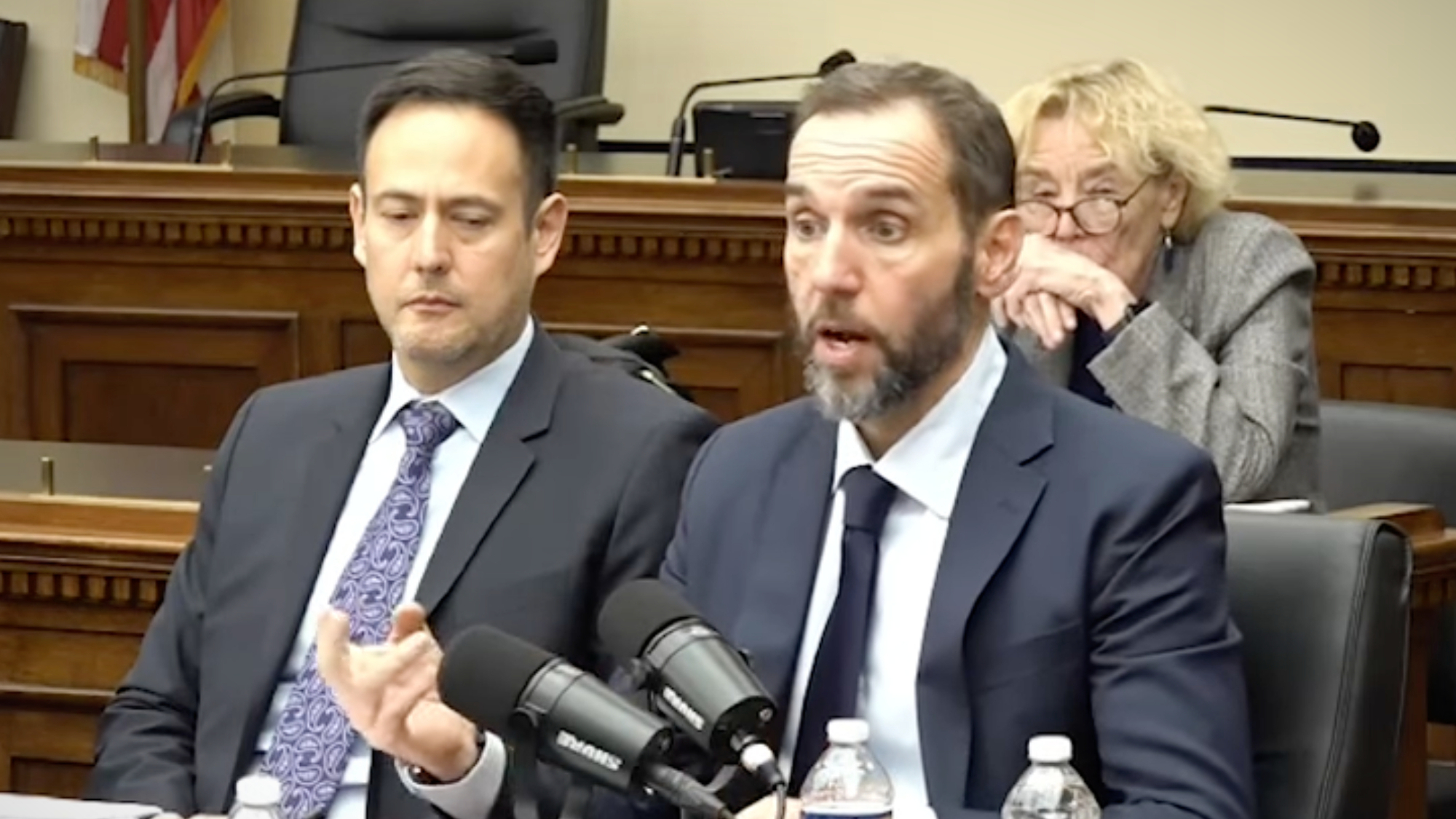Trump granting military control of federal border lands could circumvent the law
The move could allow US troops to detain people crossing the border


President Donald Trump's memorandum on April 11 ordering the military to take control of a swath of federal land along the southern border is part of an escalating series of actions by the White House to crack down on U.S.-Mexico border crossings. But it may also be an attempt by Trump to skate around federal law.
The memorandum would give the military jurisdiction over the Roosevelt Reservation, a 60-foot-wide strip of land that stretches along the southern border from California to New Mexico. It designates the reservation as a U.S. Army base, allowing the military to exert control over the area in what some are calling an unprecedented display of executive power over the U.S.-Mexico border. Trump's memorandum is also likely to face judicial challenges.
Intensifying Trump's 'sweeping crackdown'
The memorandum would "empower troops to detain people attempting to illegally enter the U.S. within the stretch of land," said Politico. This would mark a significant "escalation in the president's use of the military to facilitate his sweeping crackdown on immigration." Department of Homeland Security and Customs and Border Protection agents generally perform border arrests. There are already 7,000 troops "stationed at the border under Trump's national emergency declaration," but they have "only provided logistical support" and cannot arrest people, said KOAT-TV Albuquerque.
The Week
Escape your echo chamber. Get the facts behind the news, plus analysis from multiple perspectives.

Sign up for The Week's Free Newsletters
From our morning news briefing to a weekly Good News Newsletter, get the best of The Week delivered directly to your inbox.
From our morning news briefing to a weekly Good News Newsletter, get the best of The Week delivered directly to your inbox.
Trump wants to "get around a federal law that prohibits U.S. troops from being used in domestic law enforcement on American soil," said The Associated Press. This law, the Posse Comitatus Act, also says that troops can be deployed for law enforcement if they are "providing security for land that is part of an Army base" — and Trump's memorandum designates this land as such, allowing him to circumvent the restriction.
People who are seen trying to cross the border illegally within this strip of land "could be arrested by the Army's security forces," said the AP. People arrested by the military would then be "turned over to local civilian law enforcement agencies." The Army is planning to test this system for the next 45 days, then the memorandum will be reassessed.
The consequences 'aren't immediately clear'
The legality of Trump's memorandum remains up in the air. But the "consequences of DOD taking control of federal land at the border aren't immediately clear," said Adam Isacson, the director of defense oversight for the Washington Office on Latin America think tank, to USA Today. It could mean "more severe criminal charges for migrants who cross the border unlawfully." In particular, these migrants may be "subjected to charges beyond 'entry without inspection,' a federal misdemeanor."
This is one of several steps that Trump has taken to tamp down on immigration. A day before the memorandum was issued, a federal judge "ruled that the Trump administration was allowed to require people who are in the country but not citizens to register with the federal government," said The Guardian. This requirement "hasn't been universally implemented since it was enacted as a law in the 1940s."
A free daily email with the biggest news stories of the day – and the best features from TheWeek.com
It seems Trump's actions, polarizing as they are, are already working as he intended; in Southern California, migrant crossings have "slowed to a near halt, bringing a striking change to the landscape" of the state, said the Los Angeles Times. Illegal "border crossings have plunged to historic lows since Trump took office," said Politico; there were reportedly 7,200 migrant encounters in March 2025, down from 189,000 in March 2024.
Justin Klawans has worked as a staff writer at The Week since 2022. He began his career covering local news before joining Newsweek as a breaking news reporter, where he wrote about politics, national and global affairs, business, crime, sports, film, television and other news. Justin has also freelanced for outlets including Collider and United Press International.
-
 Political cartoons for January 4
Political cartoons for January 4Cartoons Sunday's political cartoons include a resolution to learn a new language, and new names in Hades and on battleships
-
 The ultimate films of 2025 by genre
The ultimate films of 2025 by genreThe Week Recommends From comedies to thrillers, documentaries to animations, 2025 featured some unforgettable film moments
-
 Political cartoons for January 3
Political cartoons for January 3Cartoons Saturday's political cartoons include citizen journalists, self-reflective AI, and Donald Trump's transparency
-
 ‘Let 2026 be a year of reckoning’
‘Let 2026 be a year of reckoning’Instant Opinion Opinion, comment and editorials of the day
-
 Jack Smith: Trump ‘caused’ Jan. 6 riot
Jack Smith: Trump ‘caused’ Jan. 6 riotSpeed Read
-
 Wave of cancellations prompts Kennedy Center turmoil
Wave of cancellations prompts Kennedy Center turmoilIN THE SPOTLIGHT Accusations and allegations fly as artists begin backing off their regularly scheduled appearances
-
 Trump considers giving Ukraine a security guarantee
Trump considers giving Ukraine a security guaranteeTalking Points Zelenskyy says it is a requirement for peace. Will Putin go along?
-
 Why is Trump’s alleged strike on Venezuela shrouded in so much secrecy?
Why is Trump’s alleged strike on Venezuela shrouded in so much secrecy?TODAY'S BIG QUESTION Trump’s comments have raised more questions than answers about what his administration is doing in the Southern Hemisphere
-
 Vance’s ‘next move will reveal whether the conservative movement can move past Trump’
Vance’s ‘next move will reveal whether the conservative movement can move past Trump’Instant Opinion Opinion, comment and editorials of the day
-
 What have Trump’s Mar-a-Lago summits achieved?
What have Trump’s Mar-a-Lago summits achieved?Today’s big question Zelenskyy and Netanyahu meet the president in his Palm Beach ‘Winter White House’
-
 ‘Care fractures after birth’
‘Care fractures after birth’instant opinion Opinion, comment and editorials of the day
